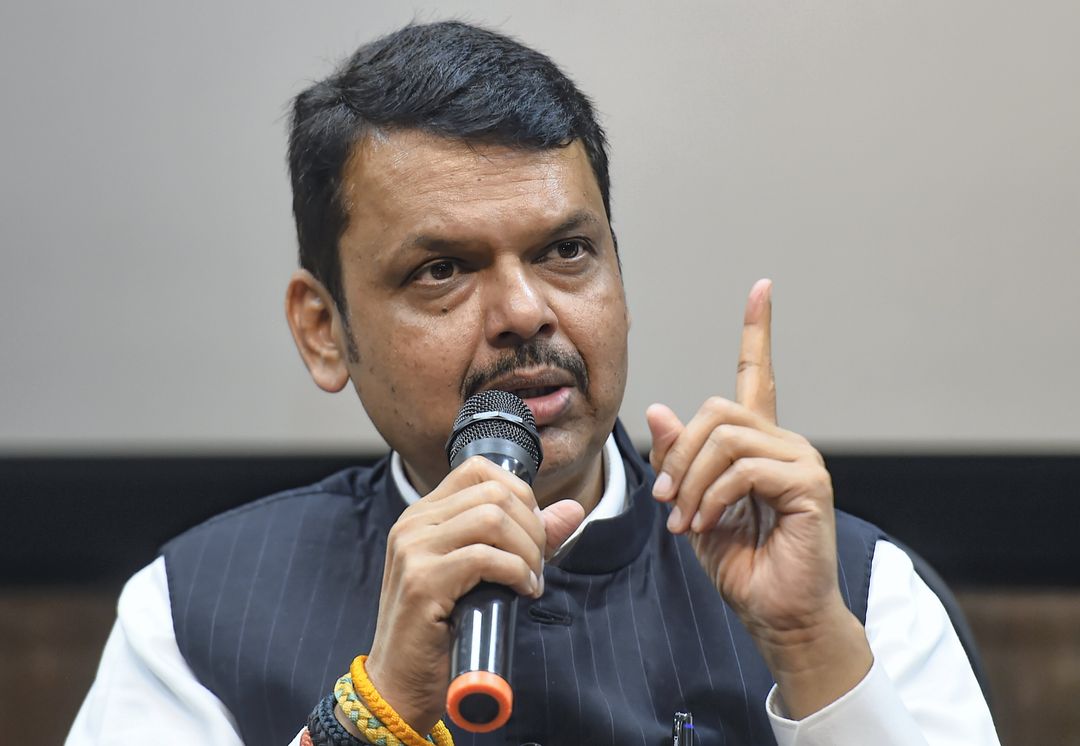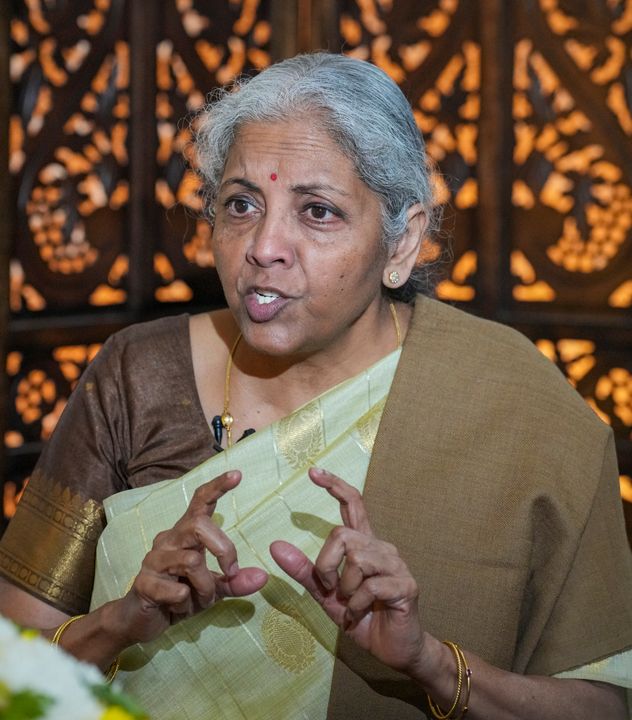New Delhi, Feb 2 (PTI) – The Union Budget 2025 has laid out an ambitious roadmap for India's digital transformation, with a strong emphasis on artificial intelligence (AI), emerging technologies, and skill development. Industry leaders have welcomed the measures, viewing them as a catalyst for economic modernization and global competitiveness.
Puneet Chandok, President of Microsoft India and South Asia, lauded the government's vision for a Viksit Bharat by 2047, emphasizing AI’s transformative role across sectors. “AI has the potential to revolutionize every aspect of Indian society—from boardrooms to classrooms, finance to farming. The establishment of a Centre of Excellence for AI in Education and a deep tech fund for startups are crucial steps towards a tech-forward India,” he said.
KPMG India CEO Yezdi Nagporewalla called the budget a "strong blueprint for India's economic ascent," particularly appreciating the initiatives focused on skill development. The setup of 50,000 Atal Tinkering Labs and AI research centers, along with policies promoting women entrepreneurs and rural prosperity, reflect an inclusive approach to development.
The budget's export-driven initiatives, such as the Export Promotion Mission and BharatTradeNet, were also hailed as key enablers of India's global trade competitiveness. These measures, coupled with the Unified Logistics Platform, are expected to streamline trade documentation and financing, significantly boosting India's standing in global markets.
Arundhati Bhattacharya, Chairperson and CEO of Salesforce India, highlighted the AI-driven innovation and digital infrastructure as defining factors in India’s economic trajectory. “This budget is not just a fiscal plan but a bold vision for a stronger Digital India. The initiatives, including the DeepTech Fund of Funds and 10,000 technological research fellowships in IITs and IISc, will help India emerge as a global leader in automation and AI-driven modernization,” she said.
Further, the focus on Global Capability Centers (GCCs) in Tier-2 cities is seen as a move that will expand AI-powered digital services, fostering innovation and employment beyond metropolitan hubs.
Tata Technologies CEO & MD Warren Harris noted that the Rs 500 crore allocation for AI in education underscores the government’s push towards research and innovation. He also welcomed the National Manufacturing Mission, which aligns with the ‘Make in India’ initiative to enhance domestic production and global competitiveness.
The Internet and Mobile Association of India (IAMAI) described the budget as forward-looking, underscoring the government's commitment to startups and the digital economy. The expansion of the Fund of Funds with an additional Rs 10,000 crore and an extension of the startup incorporation window until 2030 under Section 80-IAC of the Income Tax Act are expected to provide a significant boost to India’s startup ecosystem.
Manpreet Singh Ahuja, Chief Digital Officer and TMT Sector Leader at PwC India, believes the budget cements India’s leadership in the global digital economy. “By prioritizing AI and emerging technologies, this budget lays a strong foundation for India’s dominance in the tech landscape,” he stated.
The gig economy also received a significant boost, with initiatives focused on social security and healthcare. Rapido’s VP of Finance, Vivek Krishna, praised the measures, particularly the e-Shram portal registration and PM Jan Arogya Yojana, which he described as a “game-changer” in ensuring the well-being of gig workers.
Additionally, the establishment of five National Centres of Excellence for Skilling will help equip India’s youth with industry-relevant skills, ensuring they are prepared for global job opportunities, noted Pawan Gupta, CTO of SkillsCapital.
The Union Budget 2025 clearly positions India at the forefront of digital and AI-driven economic transformation. The government's focus on technology-led development, skill enhancement, and global trade expansion is seen as a decisive step towards realizing the vision of Viksit Bharat by 2047. With deep investments in AI, startups, and digital infrastructure, India is set to emerge as a leader in the global tech landscape.
Puneet Chandok, President of Microsoft India and South Asia, lauded the government's vision for a Viksit Bharat by 2047, emphasizing AI’s transformative role across sectors. “AI has the potential to revolutionize every aspect of Indian society—from boardrooms to classrooms, finance to farming. The establishment of a Centre of Excellence for AI in Education and a deep tech fund for startups are crucial steps towards a tech-forward India,” he said.
KPMG India CEO Yezdi Nagporewalla called the budget a "strong blueprint for India's economic ascent," particularly appreciating the initiatives focused on skill development. The setup of 50,000 Atal Tinkering Labs and AI research centers, along with policies promoting women entrepreneurs and rural prosperity, reflect an inclusive approach to development.
The budget's export-driven initiatives, such as the Export Promotion Mission and BharatTradeNet, were also hailed as key enablers of India's global trade competitiveness. These measures, coupled with the Unified Logistics Platform, are expected to streamline trade documentation and financing, significantly boosting India's standing in global markets.
AI and Deep Tech at the Core of India’s Digital Future
Arundhati Bhattacharya, Chairperson and CEO of Salesforce India, highlighted the AI-driven innovation and digital infrastructure as defining factors in India’s economic trajectory. “This budget is not just a fiscal plan but a bold vision for a stronger Digital India. The initiatives, including the DeepTech Fund of Funds and 10,000 technological research fellowships in IITs and IISc, will help India emerge as a global leader in automation and AI-driven modernization,” she said.
Further, the focus on Global Capability Centers (GCCs) in Tier-2 cities is seen as a move that will expand AI-powered digital services, fostering innovation and employment beyond metropolitan hubs.
Manufacturing and Startup Ecosystem to Gain Momentum
Tata Technologies CEO & MD Warren Harris noted that the Rs 500 crore allocation for AI in education underscores the government’s push towards research and innovation. He also welcomed the National Manufacturing Mission, which aligns with the ‘Make in India’ initiative to enhance domestic production and global competitiveness.
The Internet and Mobile Association of India (IAMAI) described the budget as forward-looking, underscoring the government's commitment to startups and the digital economy. The expansion of the Fund of Funds with an additional Rs 10,000 crore and an extension of the startup incorporation window until 2030 under Section 80-IAC of the Income Tax Act are expected to provide a significant boost to India’s startup ecosystem.
Empowering the Gig Economy and Workforce Development
Manpreet Singh Ahuja, Chief Digital Officer and TMT Sector Leader at PwC India, believes the budget cements India’s leadership in the global digital economy. “By prioritizing AI and emerging technologies, this budget lays a strong foundation for India’s dominance in the tech landscape,” he stated.
The gig economy also received a significant boost, with initiatives focused on social security and healthcare. Rapido’s VP of Finance, Vivek Krishna, praised the measures, particularly the e-Shram portal registration and PM Jan Arogya Yojana, which he described as a “game-changer” in ensuring the well-being of gig workers.
Additionally, the establishment of five National Centres of Excellence for Skilling will help equip India’s youth with industry-relevant skills, ensuring they are prepared for global job opportunities, noted Pawan Gupta, CTO of SkillsCapital.
A Digital and AI-Driven India
The Union Budget 2025 clearly positions India at the forefront of digital and AI-driven economic transformation. The government's focus on technology-led development, skill enhancement, and global trade expansion is seen as a decisive step towards realizing the vision of Viksit Bharat by 2047. With deep investments in AI, startups, and digital infrastructure, India is set to emerge as a leader in the global tech landscape.

